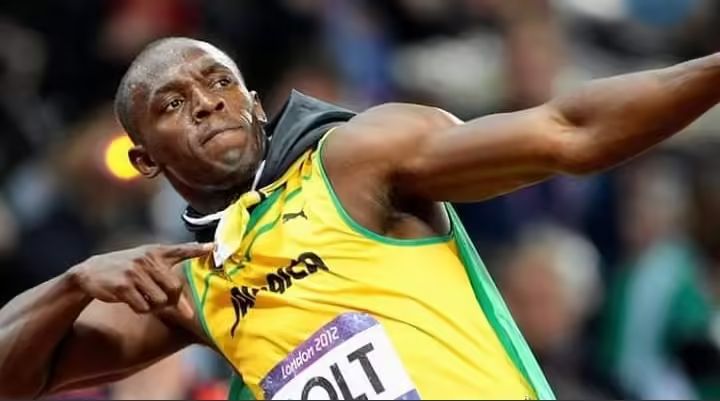In the world of track and field, Usain Bolt’s name stands synonymous with excellence, speed, and an undeniable legacy. The Jamaican sprinter, with his larger-than-life personality and unparalleled athletic prowess, has set a standard that many have deemed impossible to surpass. Recently, an American sprint legend weighed in on the conversation, making a bold statement: “There’s never going to be another Usain Bolt.” This declaration was not just a commentary on Bolt’s dominance but a reflection of the current state of sprinting and the pressures placed on today’s athletes to meet seemingly unattainable standards.
Bolt, often referred to as the “Lightning Bolt,” revolutionized sprinting during his career, particularly in the 100m and 200m races, setting world records that still stand today. His times of 9.58 seconds in the 100m and 19.19 seconds in the 200m remain untouchable over a decade later. Beyond the numbers, Bolt’s charisma and effortless showmanship on and off the track made him a global sports icon. His ability to maintain peak performance while simultaneously entertaining millions was something the sport had never seen before.
In light of this, the American sprint legend’s comment rings with a sense of finality. He acknowledged that Bolt’s combination of raw talent, discipline, and personality made him a one-of-a-kind athlete. “It’s not just about running fast,” he remarked, “it’s about the whole package.” According to the legend, while today’s sprinters are incredibly talented and deserving of recognition, the pressure to be the “next Bolt” is unfair and unrealistic.
Athletes like Noah Lyles, Erriyon Knighton, and Fred Kerley are among those who have risen to prominence in the sprinting world in recent years. Each has their unique strengths, with Lyles breaking records in the 200m and Knighton being heralded as a future star. However, the comparisons to Bolt are inevitable, and the American legend argues that these comparisons do more harm than good. “Every era has its greats,” he continued. “But trying to replicate what Bolt did, exactly how he did it, puts unnecessary weight on these young guys’ shoulders.”
Indeed, the essence of his argument is rooted in the belief that every athlete deserves to carve out their own legacy. The constant search for the next Bolt can overshadow the achievements and progress of current stars. Just as there was never another Carl Lewis or Jesse Owens, there may never be another Usain Bolt – and that’s okay. The legend emphasized that the beauty of track and field lies in its diversity of talent, where each generation has its icons who bring something new to the sport.
In conclusion, while Usain Bolt’s legacy may never be matched, it’s essential to appreciate the talent and achievements of today’s sprinters without drawing unnecessary comparisons. As the American sprint legend noted, “We should celebrate these athletes for who they are, not for who they’re not.” The world may never see another Bolt, but that doesn’t mean the sport isn’t in good hands. Each sprinter brings their own strengths, challenges, and potential to the table, and that diversity is what keeps track and field exciting.
